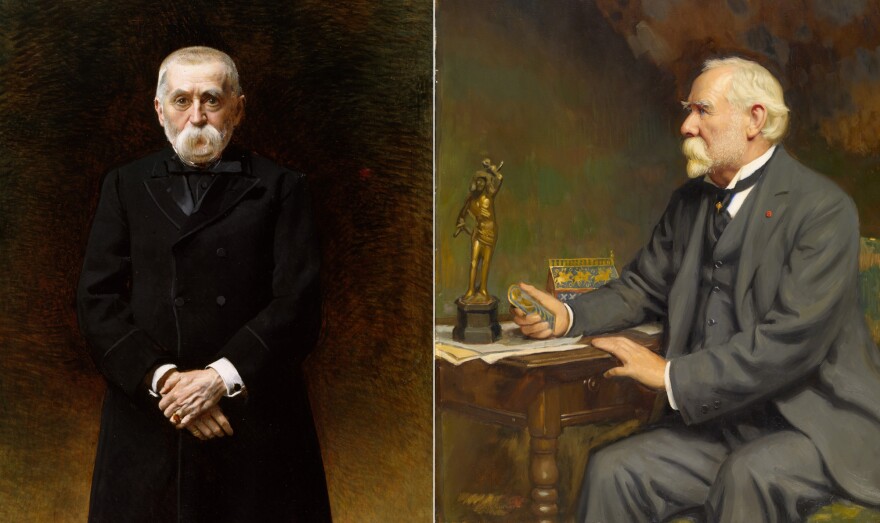Beyond the massive protests over last year's police killing of George Floyd, a remarkable reckoning on America's troubled racial history — especially the unresolved legacy of slavery — has been very much in evidence in our area over the past many months. Case in point: William Walters and his son Henry Walters, the namesakes of the Walters Art Museum here in Baltimore. Henry Walters’ gift to the City of Baltimore in the 1930s of the priceless collection of art that he and his father had amassed was a generous act of philanthropy, and the collection has been enjoyed and revered by millions of art lovers and scholars over the years.
Last week, the Walters announced that it has revised the written history that is published on their website to reflect the fact that William Walters supported the Confederacy, and that his son, Henry supported activities that honored the Confederacy well into the 20th century.
This disclosure comes in the context of at least two other area institutions, Johns Hopkins University and Hood College, where information has surfaced about their namesakes' links to slavery.
Today on Midday, a conversation about ways to acknowledge and act on the symbols and stories that represent America’s long history of racism and racial inequality.
Later in the program, Tom is joined on Zoom by two racial justice activists who'll share their perspectives on what should and can be done with such information.
A. Adar Ayira is the principal consultant with Ayira Core Concepts, a consulting firm that provides Anti-Racism/Anti-Oppression /Equity education. She’s also a co-founding member of Baltimore Racial Justice Action, and a member of Associated Black Charities.
Also joining Tom will be David Fakunle, chair of the Maryland Lynching Truth and Reconciliation Commission. He's also an associate faculty member at the Bloomberg School of Public Health, and the CEO of DiscoverME/RecoverME, an organization that provides enrichment through the African oral tradition. In addition, Dr. Fakunle is the director of Wombworks here in Baltimore, and a member of the Maryland State Arts Council.

But first, Tom speaks with Dr. Julia Marciari-Alexander, an art historian and the director of the Walters Art Museum here in Baltimore since 2013. She joins us on Zoom…
_____________________________________________________________________________________
The Maryland Lynching Truth and Reconciliation Commission (MLTRC) has released a joint statement with the Maryland Commission on African American History and Culture (MCAAHC) in response to both the police killings last year and the January 6th insurrection. It speaks to the compelling need to confront racism both in America's past and in its present-day institutions, and proposes a series of actions aimed at building "a more just society." You can read the statement on the MLTRC, MCAAHC and Banneker-Douglass Museum websites.



